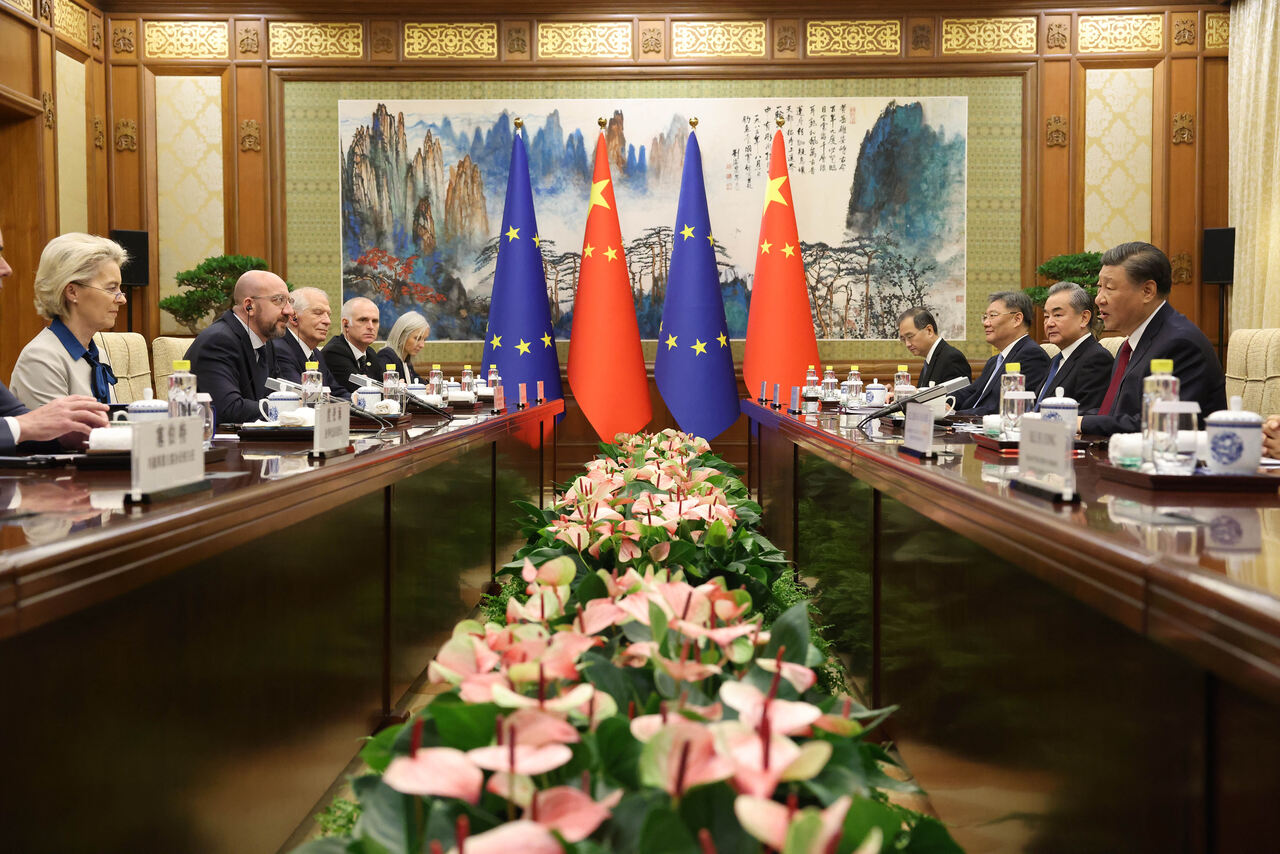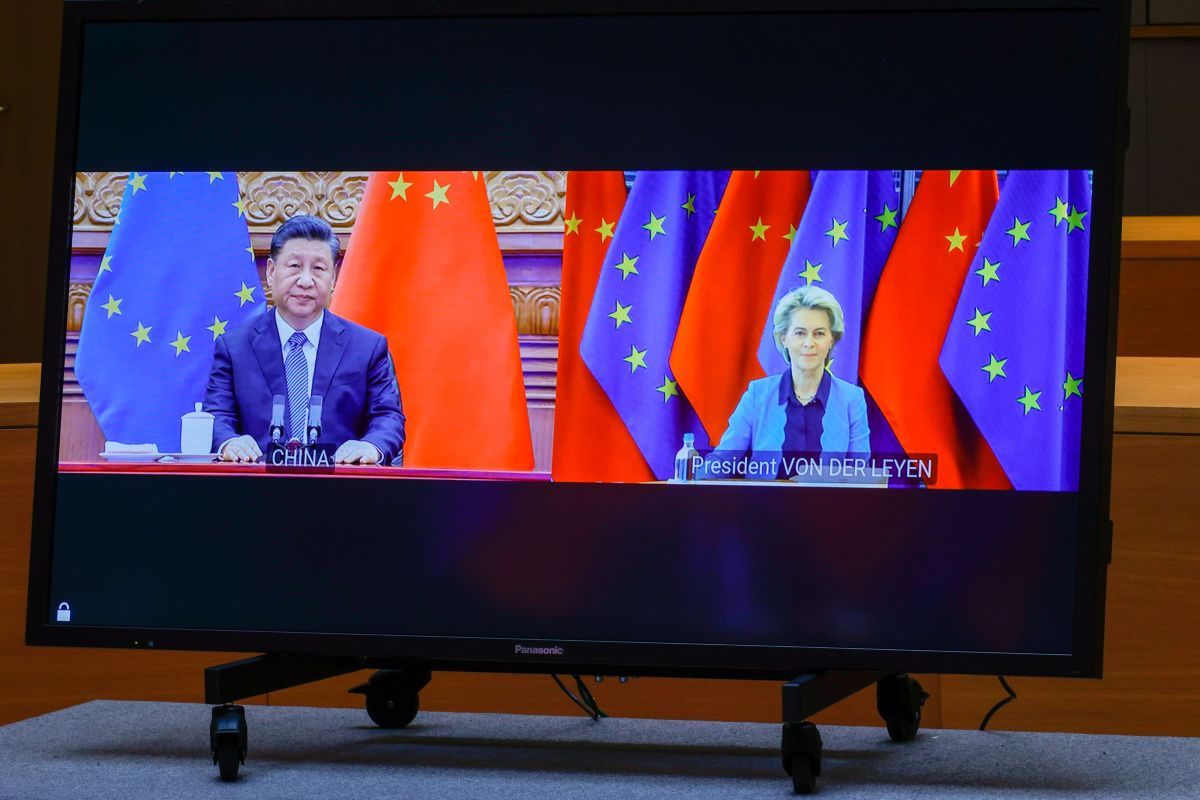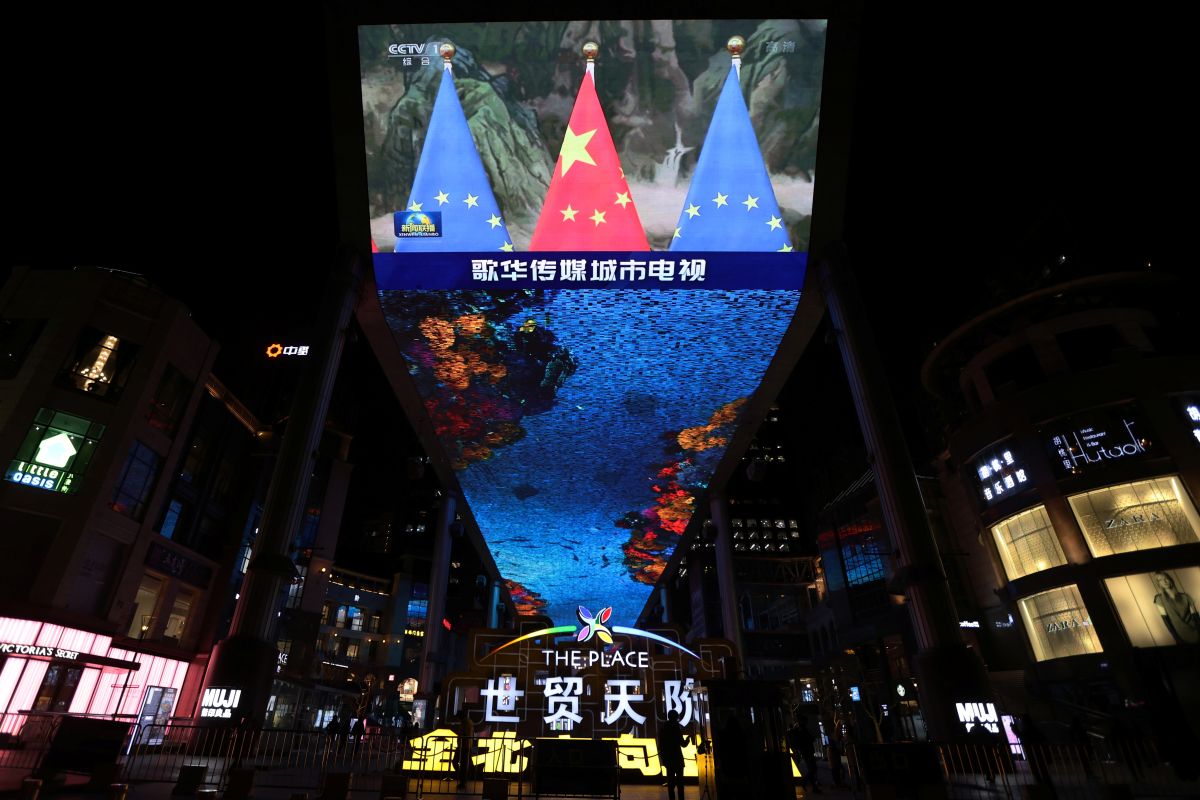EU-China Summit Ends with Protocol of Divergences
The EU-China summit held on 7 December in Beijing confirmed that a narrowing of the differences between the two entities is still unlikely. This includes the EU’s opposition to exports of dual-use items from China to Russia and to restrictions on access to the Chinese market. The lack of progress shows that the organisation of future meetings at the highest level will depend on China’s willingness to modify its policies, for example, in terms of support for the Russian Federation.
 Pignatelli/EUC / Zuma Press / Forum
Pignatelli/EUC / Zuma Press / Forum
What were the circumstances of the summit?
This was the first face-to-face meeting between EU and Chinese leaders since 2019, and the 24th summit since 1998. This year, European Commission President Ursula von der Leyen and European Council President Charles Michel (accompanied by the Union’s High Representative for Foreign Affairs and Security Josep Borell) first spoke with President Xi Jinping and then with Chinese Prime Minister Li Qiang. The summit took place in an atmosphere of the worst bilateral relations in several years due to, among other things, China’s support for Russia’s circumvention of EU sanctions, unfair economic policies towards EU companies, and the escalation of actions towards Taiwan. In June this year, the EC published the European Economic Security Strategy, which aims to accelerate reduction of EU countries’ dependence, primarily on China, on the supply of raw materials and products important for their security and competitiveness. In September, the EU launched an anti-subsidy investigation into electric cars made in China. In August, China imposed restrictions on the export of gallium and germanium, minerals used, for example, in the electromobility industry, and in October on graphite, an important raw material for, among others, the EU’s defence industry. Prior to the summit itself, however, China took positive steps towards improving relations with the EU, including temporarily lifting visas for citizens of Germany, Italy, Spain, France, and the Netherlands, and cancelling economic restrictions imposed on Lithuania in 2021.
What did the EU want to achieve?
The Commission president and the head of the European Council wanted a declaration from the Chinese leadership that China would halt the involvement of Chinese companies in Russia’s circumvention of EU sanctions and supply of dual-use products to Russia. The EC had planned to include selected Chinese entities in the forthcoming 12th sanctions package, but they were to be removed from it at the suggestion of France and Germany and discussed at the summit. Michel confirmed that the topic had been taken up but did not indicate whether the Chinese side had acceded to the EU's demands.
In other areas, Michel and von der Leyen indicated the possibility of a joint EU-China commitment to ending the Gaza conflict, including in the context of supporting a two-state solution and providing humanitarian support. They reaffirmed (as did U.S. President Joe Biden at his November meeting with Xi) their disagreement with the unilateral change of the situation in the Taiwan Strait. The EU leaders also want increased access to the Chinese market, which would favour a reduction of the trade deficit on the Union’s side amounting to around €400 billion, as well as an improvement of the operating conditions for foreign companies in China. However, they did not get a concrete answer. They also declared (which was also in the Chinese statement after the summit) cooperation with China on climate change, including an emissions trading scheme, as well as regulations on artificial intelligence, which is in the interest of both sides. There was also a session of the human rights dialogue, the resumption of which was agreed during Michel’s visit in December 2022.
What did China gain?
For the Chinese authorities, the most important thing was the opportunity to publicly highlight economic cooperation as the basis for relations with the EU, rather than differences in the context of the war in Ukraine or the situation in the Taiwan Strait. They also wanted to reduce restrictions on the operation of Chinese entities in the EU market and slow down the EU's introduction of further restrictions, but without success. Although China sees the EU’s actions as the result of support for and cooperation with the U.S. on anti-Chinese policies, in a statement after the summit, the Chinese Foreign Ministry pointed to positive elements, including the synergy of the Belt and Road Initiative and the EU’s Global Gateway project. The statement also identified the Union (alongside China and others) as one of the main actors in the emerging multipolar international order. By presenting a positive approach to the EU, the Chinese authorities wanted to support their rhetoric about China’s readiness to stabilise the international situation, including in resolving the Israeli-Palestinian conflict, which is a message mainly aimed at developing countries.
How will the summit affect Sino-EU relations?
More than anything else, the summit highlighted the differences between China and the EU in their approaches to bilateral issues and international affairs, as evidenced by the lack of a joint statement after the meetings. Both sides ending the summit without concrete results calls into question the sense of organising further sessions. The current one showed the impotence of the EU side in obtaining a compromise from the Chinese side, and the high profile of the meeting allowed China to reinforce a narrative favourable to itself. The EU will continue the reduction of its dependence on China in strategic areas (derisking). However, the extent of this effort may be hampered by some Member States, fearing the economic impact of a Chinese response (e.g., Germany, Spain) or favouring China (Hungary). The EC will continue to try to use the potential of the EU market, as well as Chinese investment needs, to increase access to China’s market. This will also include imposing restrictions and initiating proceedings against Chinese products on the EU market due to, for example, subsidies by the Chinese. The Commission, keen to deliver on its plans and lacking clarity on future EU policy until after the June 2024 elections to the European Parliament, will in the final months of its term increasingly respond not only to Chinese threats to the EU’s economic security but also in hard security, including through addressing Chinese support for the Russian arms industry. This may mean including Chinese companies in the next package of EU sanctions on Russia. It is also to be expected that the EU’s cooperation with partners in Asia, including Taiwan, will be strengthened in terms of combating hybrid threats, among others, from China. The only area of possible cooperation between the EU and China is climate change mitigation, although here too there are doubts about China’s intentions.





.jpg)